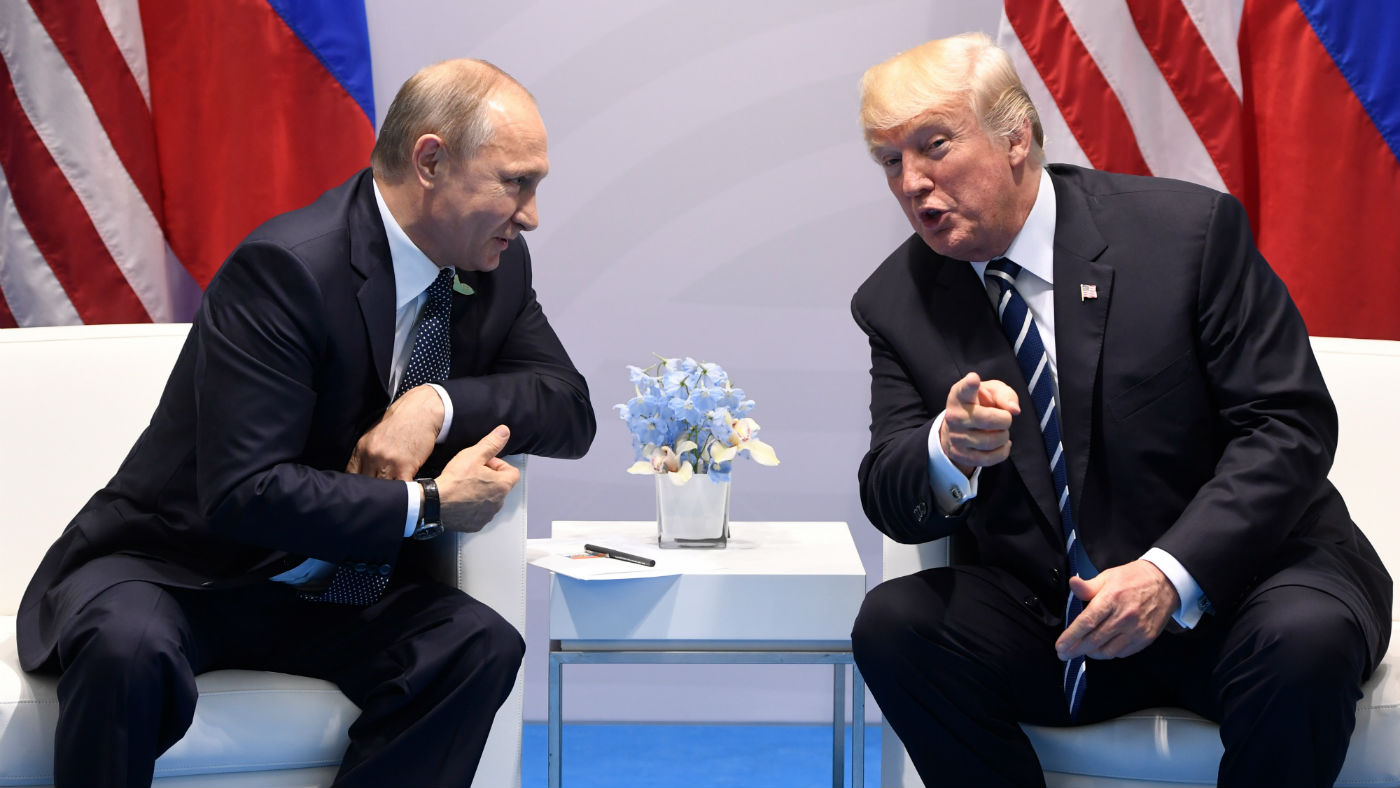Why Trump’s plan to meet Putin is worrying Whitehall
Concerns raised over US president’s continued commitment to Nato military alliance

A free daily email with the biggest news stories of the day – and the best features from TheWeek.com
You are now subscribed
Your newsletter sign-up was successful
Reports that US President Donald Trump is planning to meet Russian President Vladimir Putin during his trip to Europe next month have triggered warning bells about America’s support for Nato.
Senior British government sources told The Times that US officials “are looking to fix a date for the US-Russia talks either before the Nato summit or after Trump ends his visit to Britain, which follows on immediately”.
The UK and its Western allies had been working together to isolate Putin since the annexation of Crimea in 2014 and the Salisbury poisonings earlier this year, but Trump “wrecked that show of unity with his sudden call for the Russian president to be readmitted to the G7”, says Politico’s Jack Blanchard.
The Week
Escape your echo chamber. Get the facts behind the news, plus analysis from multiple perspectives.

Sign up for The Week's Free Newsletters
From our morning news briefing to a weekly Good News Newsletter, get the best of The Week delivered directly to your inbox.
From our morning news briefing to a weekly Good News Newsletter, get the best of The Week delivered directly to your inbox.
According to The Times, the worries of Western diplomats have been increased by the prospect of Trump holding private talks with Putin within days of the Nato summit.
“It would be a highly negative thing to do,” one source told the newspaper. Another Whitehall insider said: “Everyone is perturbed by what is going on, and is fearing for the future of the alliance.”
A third official added: “It’s unclear if this meeting is after or before Nato and the UK visit. Obviously after would be better for us. It adds another dynamic to an already colourful week.”
Maintaining America’s commitment to Nato “has been Britain’s primary concern since Trump’s election, and Theresa May made securing a pledge of support from the president the main target of her first trip to the White House last year”, says Blanchard.
A free daily email with the biggest news stories of the day – and the best features from TheWeek.com
However, at the Nato summit that followed the Prime Minister��s visit, Trump caused anger by failing to give an expected commitment to the alliance’s founding principle of collective defence.
One of the president’s chief objections to Nato “is the abject failure of most of its members to meet the basic 2% defence spending target”, says Blanchard.
The UK “is desperate to hug the US close”, he continues, and has been urging European allies to up their spending.
Defence Secretary Gavin Williamson has renewed that call today in an article published in The Times. Williamson writes: “Our continent has to take greater responsibility for its own security. Europe cannot expect to outsource its defences to American taxpayers.”
In a sign of the growing concern at Whitehall over defence, May has reportedly asked Williamson to justify Britain’s role as a “tier one” military power, throwing the Ministry of Defence’s armed forces modernisation plan into disarray weeks before the crucial Nato summit.
“People have their head in their hands,” one official told the Financial Times.
A Downing Street official insisted it was “categorically untrue” to suggest Britain’s “position as a leading defence nation is somehow in question”.